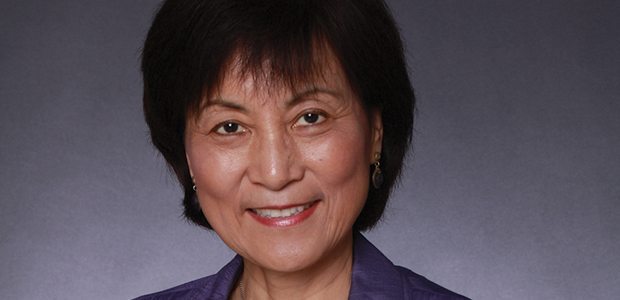I was born in a small village near Shanghai, a year before the Communist government took over in 1949. My village was roughly 10 miles from the city center, where the famous Yu Garden is still located. And while the Yu Garden remains one of the main attractions of Shanghai today, my small village is now at the heart of Shanghai, similar to Times Square in New York City, but with the most expensive real estate and the most luxurious designer shops you may also find in London, Paris, or Beverly Hills, California. Hundreds of skyscrapers fill the former farmlands in the Pudong area (literally means “east of the river bank”). Shanghai has surpassed its glory in the 1930s, when it was known as the Paris of Asia.
Up north in Beijing, wide boulevards run past the Imperial Palace and Tiananmen Square with around-the-clock bumper-to-bumper traffic on four of the six ring roads. Porsches, Mercedes, Rolls-Royces and Hummers are not rarities. At the other extreme, in both cities and in Guangzhou in the south, governments build special quarters for the millions of migrant workers who contribute to the growth of the economy in their diligent, silent manners.
After sleeping for three decades, the “Kung Fu Panda” woke up, and in less than 40 years, China transformed from one of the poorest countries in the world to the second-largest economy, projected to pass the United States in the next few years, but this growth is happening at the expense of an ever-increasing discrepancy between the rich and the poor.
Privately owned entrepreneurial firms make up the fastest growing sector in the Chinese economy. Though the State sector has some of the largest firms in the nation, it contributes less than a third of China’s gross domestic product (GDP). The remaining portion is contributed by private and foreign firms.
In 2012, 95 of the Fortune Global 500 were Chinese firms, and among those, only three are from Hong Kong and three from Taiwan. Among the other 89 Chinese firms, seven are privately owned. On the Forbes’ World’s Billionaires list, 122 are Chinese. It has been observed that foreigners go to China to buy fake Gucci, Dior, Louis Vuitton, or Rolex, while Chinese people go overseas to buy the real ones.
Private-firm philanthropy in China reached US$4.6 billion in 2012. Total donations by both State and privately owned firms or individuals in 2009 to the Guangcai (Glorious) Program, which aims to eliminate poverty in the western and other poor, isolated regions in China, reached US$25 billion.
In the summer of 2009, my daughter volunteered for relief-and-development organization World Vision International in a mountain village in Yunnan. The villagers live in mud quarters with about 50 families sharing two public outhouses. Some outhouses are built on the mountainside with a 15-foot drop below. A few families may have a color television with a few channels, and children often have to walk to school for up to two hours.
China is a land of paradoxes, between the city and the countryside, between the rich and the poor, between modernity and traditionalism, between the most advanced technologies and the most primitive conditions. Even living there for almost a lifetime, like Joseph Needham (a British scientist who visited China numerous times, known for his scientific work and history of Chinese science) or Matteo Ricci (an Italian Jesuit priest who lived in China for 32 years, known for his mathematics, cartography, and mastery of Classical Chinese), may not prepare one to know China. Since 2000, I have been going every year for two to six months each year, and I barely know China.
How does one prepare to visit China for the first time, whether for business or for pleasure? I would recommend two books as a start: Scott Seligman’s Chinese Business Etiquette (1999) still has the most relevant and useful tips for positive everyday encounters at both the professional and personal levels. Simon Winchester wrote a highly readable account about the life of Joseph Needham, whose unconventional marriage led him to China to discover Chinese scientists’ inventions in every field over five centuries. This book called The Man Who Loved China, written in the most welcoming manner, is a good start to learning about the roots of Chinese civilization and the foundation of modern Chinese thoughts and mindset. Also, China Daily –an English newspaper for foreigners living in China – is a quick source for updates on the latest news.
China is both deeply embedded in its 5,000-year history and also evolving at the speed of light in its modern life. It is a land of paradoxes, and the best way to learn it is to keep an open mind, open eyes, open ears and open hearts, with an attitude of appreciation and respect. Don’t be surprised by anything. Nothing should be seen as strange, just different.
Here is a simple example: If you ask for a glass of water during dinner, it means warm (or even hot) water in China. Warm water helps digest the fat in food, and this old Chinese tradition is still widely believed and practiced by Chinese people today. Is it strange, or is it wisdom?
Some preparation is highly recommended for a fruitful visit, whether you are going there to meet some potential business partners, to explore some potential opportunities, or even just to expand your horizon. Chinese people appreciate your demonstration of a genuine interest in the country’s culture and people. A little knowledge or a few phrases of warm greetings will go a long way in establishing a good rapport. Total ignorance or cultural blunders will be taken as insults, but Chinese people are forgiving if you show you are eager to learn. Respect for any custom (e.g., toasting every time before you take a sip of your wine, beer or white spirit – equivalent of strong vodka) and willingness to try something new (e.g., ox tongue or sandworms) will be pleasing to your host. If something were going to upset your stomach (e.g., spicy or raw food), your host would understand a polite decline. The golden rule works everywhere, China included.
The news about China has mostly been about pollution, corruption and counterfeiting. This is all true, but we also have to put this in perspective. The Chinese government is working hard to make improvements in all aspects. There are new regulations regarding carbon emission; efforts have been stepped up to combat corruption in government, and entrepreneurs discovered to have produced adulterated products (notorious in food and pharmaceutical products) could receive capital punishment.
The fact is that Chinese people are disgusted with these problems as much as the government and consumers. Chinese people have strong national and ethnic pride. They are eager for the country to produce high-quality products, have clean water and air, and increase the standard of living for everyone.
Like the United States from the 1940s to the ‘60s, massive industrialization and rapid development are providing opportunities for everyone, making many rich and leaving many more behind. The level of energy and determination to become one of the strongest nations in the world is not to be underestimated. If you are well-prepared before you get there, you will learn more about China than you can imagine. You may come home with some unexpected friendships and possibly a profound change in your perspective about this land of paradoxes.
Anne Tsui , professor emeritus at the W. P. Carey School of Business at Arizona State University, is at the forefront of lessons about business collaborations with China. She focuses on bringing related knowledge to the classroom and spreading it throughout the business world. She came to the United States from Hong Kong, China as an undergraduate student in 1970. She later became founding president of the International Association for Chinese Management Research, a professional and academic organization targeted at scholars, students, managers and consultants interested in advancing knowledge on managing organizations within the Chinese context. She also taught a W. P. Carey MBA class called “Doing Business in China.”




